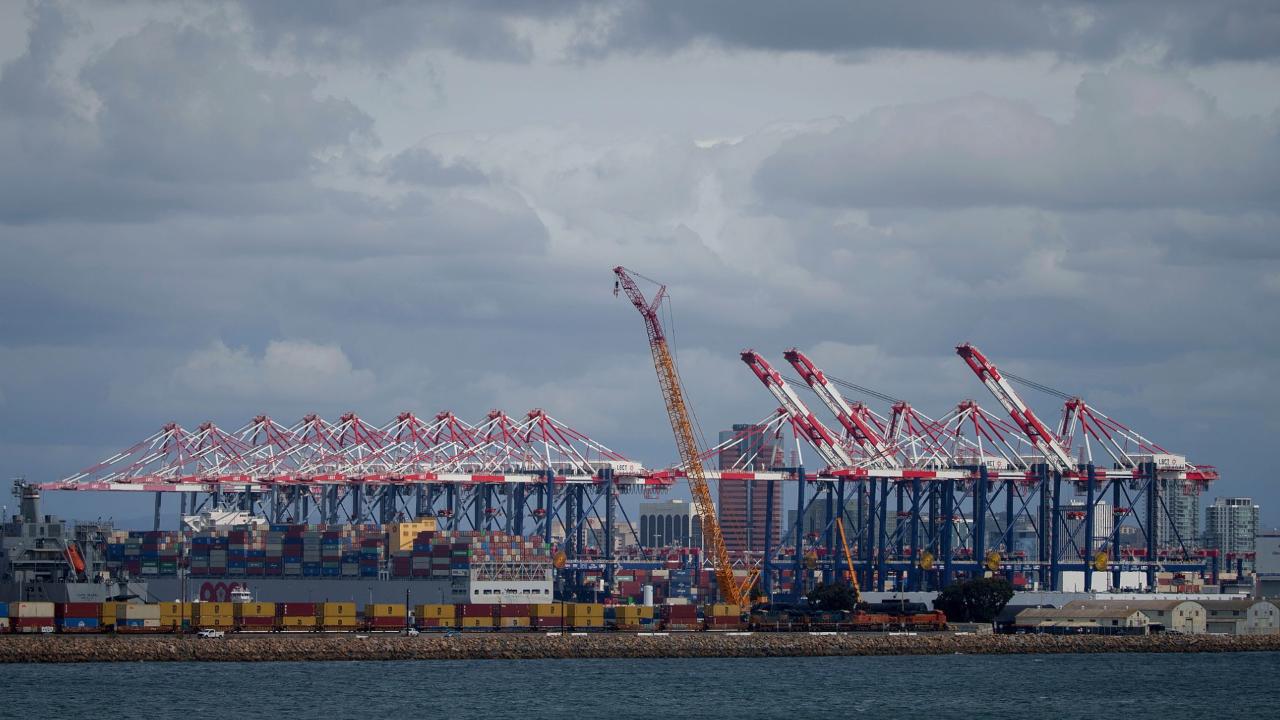Abortion puts New York Republicans on defense
Voters in blue states should be ready to hear a lot about abortion in 2024 congressional campaigns.


Democrats are betting that the road back to the House majority rests with voters who care about abortion access — especially in blue states like New York.
The party lost seven battleground congressional seats in the Empire State, four of which were flipped from blue to red in 2022 — in addition to a handful of others in strongly blue California, New Jersey and Oregon. While advocates for abortion rights organized around specific constitutional or legislative abortion bans in swing states in 2022, many expect the priority of the issue to become more widespread next cycle.
“It’s possible there are voters who felt immune to the fallout of the Dobbs decision previously. This will be at their front door, and we're confident that this will help activate them to engage even deeper on this issue than even we saw in 2022,” said Ryan Stitzlein, Senior National Political Director of NARAL Pro-Choice America.
Already, House Majority PAC, the Democratic Party’s main House-specific political action committee, is budgeting $45 million to compete in New York next cycle. And the group’s president, Mike Smith, firmly declared that “the path to a Democratic House Majority runs through New York.”
How able Democrats are in turning the ‘24 election cycle into a referendum on abortion policy will go a long way toward determining the party’s success at the ballot box. Advocates believe that Republicans may just play into their hands.
They believe they can spotlight a continued appetite for anti-abortion legislation in a GOP-led House, as well as a looming court case that could restrict abortion even in states where it is protected by state laws.
The House has already voted on one bill that would make it a felony to not provide medical assistance to an infant that survives an attempted abortion (which is already illegal), and it has promised a speedy vote on a second that would put stricter bans on federal funding for the procedure.
The newly elected Republicans from New York — Reps. Anthony D’Esposito, Mike Lawler, Marc Molinaro, George Santos, Nick LaLota, and Brandon Williams — all voted in favor of the first bill, which passed the House.
These members are all targets of the Democratic congressional campaigns spending group, House Majority PAC. The Democratic Congressional Campaign Committee, chaired by Rep. Suzan DelBene (D-Wash.), has not yet released its target list.
D’Esposito, Molinaro, LaLota, and Williams did not respond to multiple requests for comment. Lawler’s office denied an interview request and he denied a request made in person. The National Republican Congressional Committee also declined to comment on this issue.
Abortion rights advocates are also anticipating that a federal judge will rescind the FDA's approval of a popular abortion drug, in Alliance for Hippocratic Medicine v. FDA, significantly restricting access to abortion. The decision is still pending, but such a move would bring the issue to the fore for many voters, even in states with strong protections for abortion. Some national drugstore chains like Walgreens have voluntarily pulled the drug from their shelves in anticipation of a decision in the case.
That is just one component of the abortion access tug-of-war. Stitzlein, of NARAL, said while the FDA case is the current battle, he believes the anti-abortion movement will continue challenging access on other fronts.
“I remain convinced that there's going to be a move to a national abortion ban by Republicans in the House and in the Senate. And nothing I've seen dissuades me of that," said Rep. Joe Morelle (D-N.Y.), who represents an upstate battleground district, in an interview with POLITICO. "The protections that are offered in states like New York and California, if there's a national abortion ban, won't be a way to protect women anymore.”
Morelle, who’s race was considered a toss up last cycle, said he not only talked about his support for abortion access on the trail but made it a “centerpiece” of his campaign.
“Incumbents here, they're going to have to make a decision about whether or not they're going to adhere to the national agenda that has been established by, frankly, pretty extreme members of the Republican Party," Morelle said. Or if "they're going to represent the interests of people in their communities that are much more moderate.”
Advocates and Democratic lawmakers believe even the threat of a national ban will activate voters in New York in the same way the initial Dobbs decision did for voters in purple and red states, from Michigan to Kansas, in the midterms.
“This is an issue that's not going away because Republicans are going to keep pushing the envelope and keep pushing the envelope,” House Majority PAC Executive Director Abby Curran Horrell said in an interview with POLITICO.
In 2024, Republicans in congressional races in reliably blue states will also be running alongside whomever ends up being the GOP presidential nominee. Nearly all the candidates have already declared support for abortion restrictions or bans.
Former President Donald Trump has said Republicans should have moderated their anti-abortion stance in the 2022 cycle, but he also takes credit for putting in place the Supreme Court justices who overturned Roe v. Wade. Former Vice President Mike Pence supports an outright national abortion ban. And Florida Gov. Ron DeSantis is expected to sign a six-week abortion ban into law in his state.
“The fact that they will presumably support [the nominee] will be showing that they are objectively anti-choice,” said Rep. Jerry Nadler (D-N.Y.) about the frontline Republicans in New York. “Any anti-choice vote they make will obviously come back to bite them.”
If there’s any success in restricting access, Nadler said, “in New York, I think the Republicans are going to pay very dearly.”












